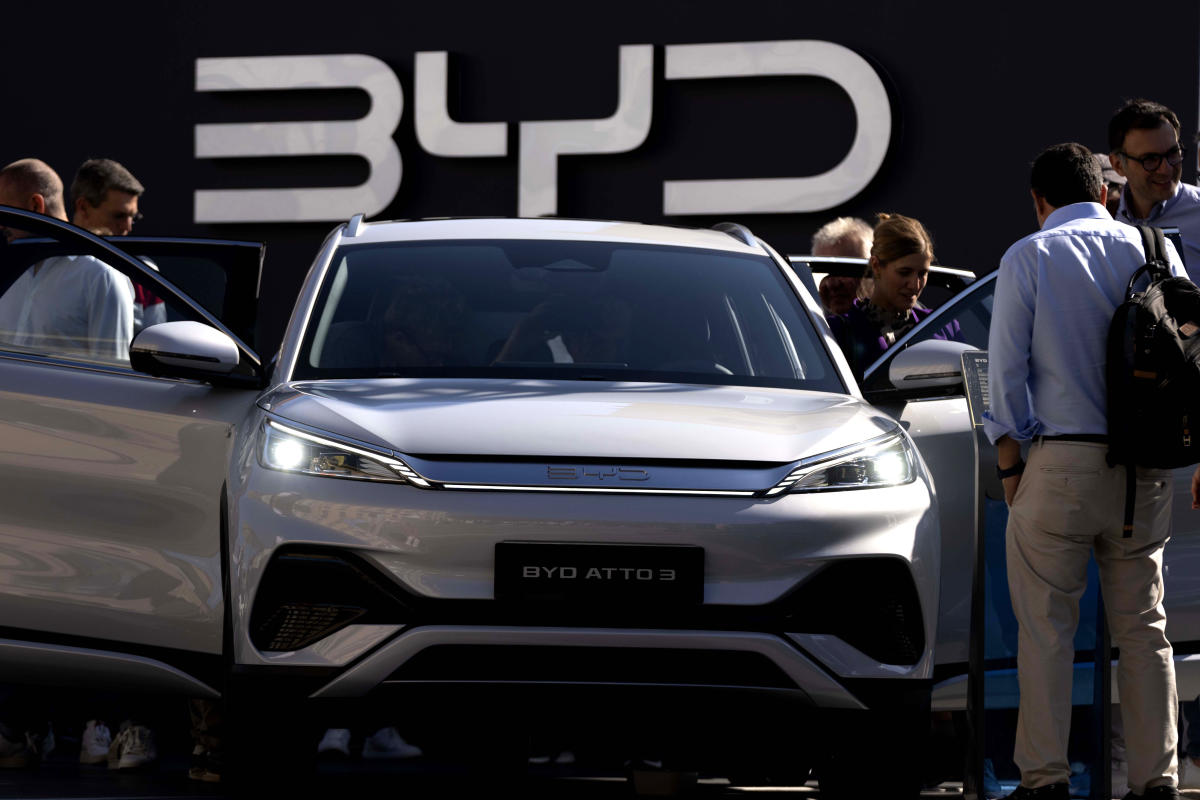BEIJING (AP) — Now that Europe has actually revealed tariffs on China-made electrical cars and trucks, the continent is bracing to see if the other shoe drops.
Will China strike back with tariffs on European cars and trucks, taking objective at German makers such as BMW and Mercedes? Would it put tariffs on farming items, targeting Europe’s politically prominent farmers? Or high-end products from Italy and France?
Experts caution that an intensifying trade war might break out, raising rates for customers and harming exporters and their employees on both sides. Both are significant markets for each other — China, an increasing economy of more than 1-billion individuals, and Europe with its reasonably affluent population of more than 400 million.
“It’s a bit like seeing a sluggish movement traffic mishap unfolding,” Jens Eskelund, the president of the European Chamber of Commerce in China stated previously this year. “The mishap has actually not taken place yet and … it is still possible to discover an off-ramp. It is getting immediate.”
The Chinese federal government has stated it will take “all steps required to secure our genuine rights and interests” in action to the tariffs on electrical cars however it hasn’t defined what those may be.
China introduced an anti-dumping examination into European brandy exports in January, an alerting shot targeted at French cognac. France was a fan of the European Union examination that led to Wednesday’s EV tariff statement.
The EU is likewise examining subsides provided to Chinese wind and solar business and whether China is unjustly limiting access to its market for medical gadgets, a long-running problem of European producers.
The European Union stated it had actually connected to China to go over the findings of the EV examination, which the tariffs would work on July 4 if the 2 sides stop working to solve the problem. The tariffs would be provisionary and completed just after 4 months.
China’s Global Times paper has actually reported that Chinese business are preparing to ask the federal government to introduce an anti-dumping examination into specific EU pork items and an examination of aids for some dairy items.
The state-owned paper has actually likewise estimated a leading Chinese vehicle market professional requiring raising the tariff on imported cars with bigger engines to minimize carbon emissions, a relocation that would strike high-end German exports from Mercedes and BMW.
Volkswagen revealed issue that the EU tariffs on Chinese electrical cars might lead to an escalation of trade disputes and stated the European Union is promoting a continuous pattern towards protectionism, nationalism and isolationism.
“The unfavorable results of this choice surpass any prospective advantages for the European and particularly the German vehicle market,” VW stated in a declaration.
Research study company Sanford C. Bernstein kept in mind that the effect on German makers would be silenced by the truth that the majority of their cars and trucks offered in China are made in your area. Just 2% of Volkswagen’s China sales are imports susceptible to greater tariffs, together with 15% for BMW and 19% for Mercedes-Benz.
China might likewise enforce vindictive tariffs on French and Italian high-end products, cosmetics, white wine, chocolate or furnishings, composed Gabriel Wildau, a China expert at the Teneo consultancy, in an analysis ahead of the statement.
While Germany fears retaliation versus its car manufacturers and chemical manufacturers, France and Italy have actually been the main supporters within the EU for tariffs on electrical cars, he composed.
How huge an effect the provisionary tariffs would have on Chinese EV sales is uncertain. Some Chinese business may still have the ability to cost an earnings, even with tasks as high as 30%.
The provisionary tariffs vary from 17.4% to 38.1%, depending upon the carmaker, and begin top of an existing 10% tariff on cars. The brand-new rates would present a severe market barrier to Chinese EV exports, the China Chamber of Commerce to the EU stated.
Estimations by the Rhodium Group discovered that that 5 of 6 designs from BYD, China’s biggest EV maker, would make an earnings with a 30% tariff, while a made-in-China Tesla Design 3 would cost a loss.
